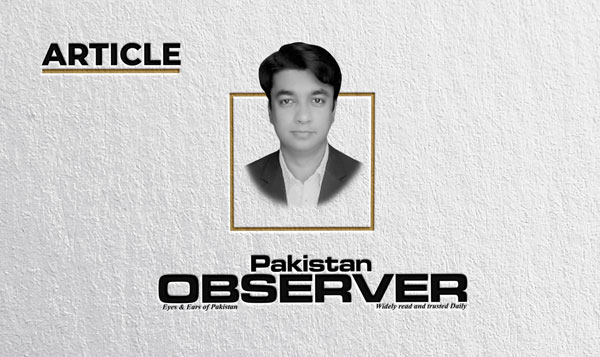Black hole
WE have been told since our childhood that Pakistan is a resource-rich, four-season, agricultural country.
Despite these resources, we haven’t seen any economic development, no improvement in the life of the average person, and a bleak future.
In the latest development, the IMF is not satisfied with our revenue plan, whereas our Prime Minister is trying to attract investment by calling investors his masters.
We are low on foreign reserves, oil reserves will soon deplete and we don’t have any gas. Pakistan is also seeking help from the Bank of China for macroeconomic stability.
So once again we are at a crossroads with no room for mistakes. Instability in politics is often cited as a cause of economic problems by political parties.
Every party claims that if they could have ruled for several more years, they would have turned Pakistan into an economic heaven.
So from the perspective of every political party, their opponents are blameworthy for whatever crisis we are facing.
Every government comes up with fancy GDP figures and how they kept rupee to dollar parity under control.
These figures mean nothing to a common man if his standard of living is not improving and if there is growing income inequality.
When a common man in Pakistan looks at a shipping container, he doesn’t think about foreign trade, shipping lines, hundreds and thousands of jobs, and foreign exchange.
Rather, the first thing that comes to his mind is political rallies, roadblocks, police, tear gas and chants of parties.
The reason we don’t think about opportunities and focus on useless activism is that in this land of the pure, everything revolves around politics.
That’s why experts believe political stability is directly related to economic stability. Therefore, if we could somehow find an end to this current instability, our economy may find some ground as well.
The question is, does political stability, GDP growth rate, or being naturally resource-rich guarantee economic success?
Take Angola for example, the seventh largest country in Africa, and rich in liquid gold. When the country was under occupation, it was believed that they couldn’t progress due to colonial rule.
After independence, Angola slipped into civil war and that chaos ended around early 2002. From the year 2002 to 2010, Angola had one the fastest growing GDPs.
However, their ranking on the Human Development Index (HDI) worsened during these years, as by 2010 they were 150th, whereas in 1999 they were 137th.
Growing GDP brought no respite for the common man. During one of his lecture, the world-renowned British economist, Sir Paul Collier said that the annual outflow of black money from African countries is around $200 billion, that is the amount of money that should have been taxed, but didn’t.
This amount is twice the size of Africa’s total public inflow aid.That is the crux of the problem, corruption, lack of transparency and no shared identity.
On the Human Development Index, Pakistan ranks 161 out of 192 countries. It is not political instability but rather a lack of seriousness toward designing a sustainable economic model that is the problem.
After every IMF program, we face the same challenges, only with even fewer options to fight as before.
We have to stop chasing GDP growth rate and focus on improving our position on the Human Development Index.
Democracy and resources aren’t enough for prosperity, you need good governance, check & balance to ensure the system is not infected with corruption, and transparency to see how the power and control are being transferred.
Instead of spending millions on infrastructure, focus on the development of areas that already have an infrastructure base.
The first step is to create a shared identity amongst compatriots. Countries that couldn’t establish a shared identity, continue to face civil wars and conflicts despite being rich in natural resources.
We adopted the colonial economic style, where the system benefits the few, and the rest struggle for crumbs of bread.
We don’t invest in people, we invest in window-dressing campaigns, to post high GDP figures so that the good optics can earn more votes next time.
The economic cycle should continue to roll regardless of any political upheaval. It will be impossible to achieve sustainable economic development while long marches and military general appointments remain matters of vital importance.
It seems like this political debacle has created a black hole, where every issue, every problem and every debate gets sucked in and nothing comes out of it.
—The writer is contributing columnist, based in Karachi.










